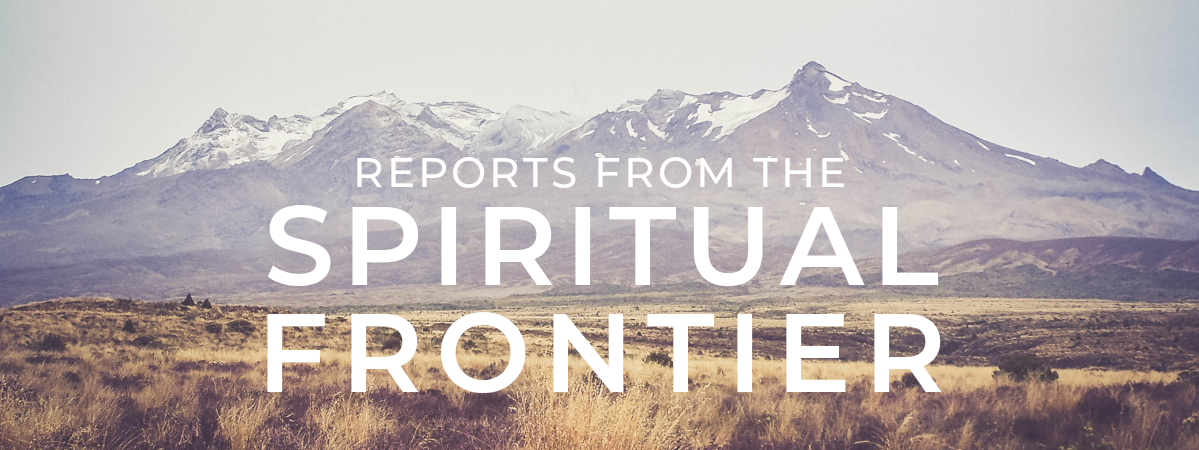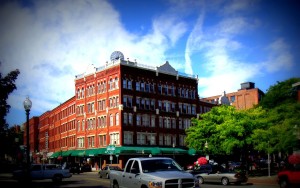It’s exactly a year to the day since the Vine ended, one of the most ash-grey moments of my life.
I don’t know why, but up until this point, I have felt very little about all of it. I did not experience anything but bone-weary relief when the Vine closed. I did not mourn when we sold our house, moved from the city that we had tried to call our home. I did not cry when we said goodbye to our friends, smiles on our faces like paint on cracked plaster.
I don’t know exactly why that all changed this last weekend.
Perhaps it was simply this year mark.
Perhaps it was being on a retreat with my new faith community, seeing the faces around me, and thinking about the people who are no longer in my life.
Perhaps it was having the retreat led by the pastor of a new church, one I had helped out during their opening worship gathering, in the very same weeks that the Vine was drawing to a close.
Perhaps it was the Taize music, bringing back nights and morning in a tiny house in our early years: two couples praying, over-full on hope; all those dreams painful rubble just a few years later.
But, for the first time this weekend, I wept.
And I missed it.
I missed the best moments of the church I tried so desperately to plant, of the times when I saw people come alive, when I watched friendships blossom, when I experienced those giddy times when I knew we were undiluted outpourings of God’s goodness to our world. I miss those moments when I felt like I had discovered an expression of church that didn’t require all the backdoor institutional compromises, one that felt like the purest offering of love that I could lift up with my life.
I miss my house. This is perhaps the most visceral of my losses. It was a glorious home; one that offered us the very best of what gave us life and the very best of what we hoped our lives would be. I miss our hardwood floors and big windows. I miss our double sized living room, our working fireplace, our wall to wall bookshelves. I miss the meandering curve of our second floor hallway and my office with its slate green walls, contemplative windows, and solid wood-block of a desk. I miss our quiet bedroom, our hopeful sitting room, our lead glassed windows, our small hidden cabinets. I miss the promise of our empty third floor, decorated with the prayers and hopes of our friends and family, waiting for a future spring, full of guests, children, and joy.
There is much that I don’t miss: the suspicious water spots on the ceiling, the sloping pitch of the floor, the sinking feeling, as our dreams slipped through our hands, that we really couldn’t afford a place like this and still build a life together.
Still, I know we will never live in a house that beautiful again.
And – I miss, I miss my city, which still feels like home.
I miss the unpretentious beauty of its old houses.
I miss the downtown in all its struggle and hope.
I miss our friends: the young hipsters, the idealistic boomers, the dirty-fingernailed street people, the beautiful children, and the good hearted business owners.
I miss the trees and the lakes.
I miss the farms.
I miss the feeling of roots, of love for place that grew from stilted practice to effortless habit within me.
While its landscape is scarred with trauma and hurt, while often the very crosswalks and stop signs taste of bad memories, of deep doubt, of creeping, bitter disappointment, while I don’t know that I could ever have been more than a dancing puppet of my best self there, I still miss it.
I miss it. I miss it. I miss it.
I feel like I’m at a pause right now, catching my breath on a journey to somewhere. And, I admit, this pause is indeed a pleasant, peaceful, healing one.
But there are days I look back at the road behind me,
See the shape of that stillborn future,
And weep.
“By the rivers of Babylon—
there we sat down and there we wept
when we remembered Zion.
If I forget you, O Jerusalem,
let my right hand wither!
Let my tongue cling to the roof of my mouth,
if I do not remember you.”
Psalm 137

